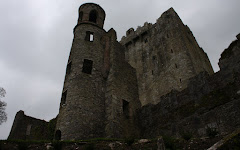For
Memorial Day weekend, my friend Pam and I checked out Jeju, a volcanic island
off Korea's southern coast and often touted—to Americans, anyway--as Korea's
"Hawaii." Whether or not I ever visit Jeju again, I am
technically suspending judgment on that "Hawaii" analogy for now,
even if, in the meantime, I remain largely skeptical. Yes, Jeju is an
island created by volcanic activity. However, latitude, for sure, negates
a tropical designation even if it certainly has a more temperate climate than
the rest of Korea. Despite the fact that palm trees dot coastal areas and
Jeju oranges are famous, the Jeju palm trees look more like those found in
southern California and Arizona—two places also capable of producing citrus.
So, again, this Hawaii comparison . . . I'm not feeling it.
Granted,
my mental and emotional state at the time of the visit ranked a goodly distance
below optimal: weary and school-stressed, I lacked both energy and
attitude to embark on a true adventure. We also spent inordinate amounts
of time in airports on both ends of our get-away due to delayed flights.
And, to do justice to the island, one really should rent a car, which we
did not—neither one of us very excited at the prospect of engaging in the act
of driving, totally based on our Seoul driving experiences, of course . . . and
which, to be honest, really should not be used to judge driving in the rest of
Korea!
Hence,
with this preface and subsequent disclaimers, I shall now present some photos
of the trip and allow you to draw your own conclusions:
Here are
views of Hamdeok Beach from our hotel room balcony on various days at various
times.




Looking
back at the seawall running in front of our hotel.
I did
quite like the "stone grandfathers,” or dol hareubang, carved
from blocks of basalt. Traditionally placed outside of gates of
villages and homes, these distinctive stone gods offered protection against
demons traveling between realities.
I loved
this "stone grandfather" telephone booth!
On Saturday, we took a short ferry ride to the small island of Udo, just off
the coast of Jeju. Here are some of the things we saw there.
Apparently
Jeju, which for centuries was quite isolated from mainland Korea, developed a
matriarchal family structure, especially in Udo and Mara, two out-lying
islands. Haenyeo, or "sea women"—usually the heads of their
families who controlled the income-- earned their living from free diving,
often all year round in quite cold water without scuba gear in order to
harvest abalones, conchs, and other marine products. Because of their
superior ability to resist cold, women were believed to be better at spending
all day deep-water diving. Even if rapid economic development
and modernization have greatly diminished the numbers of haenyeo still
actively working, we spotted some in several different places off the coast of
Udo.
Next are bangsataps, towers made by stacking or
piling stones, which were believed to ward off evil, provide protection, and
promote prosperity. Quite large ones can be found on certain beaches, in
cities and towns, and out in the countryside.
These last photos are from Hamdeok town, where our hotel was located.
So, do tell: Are you catching a Hawaiian vibe here?!!






.jpg)







































1 comment:
MMMM....not exactly...no. But you are headed there soon and I trust you will provide a full report. :)
Post a Comment